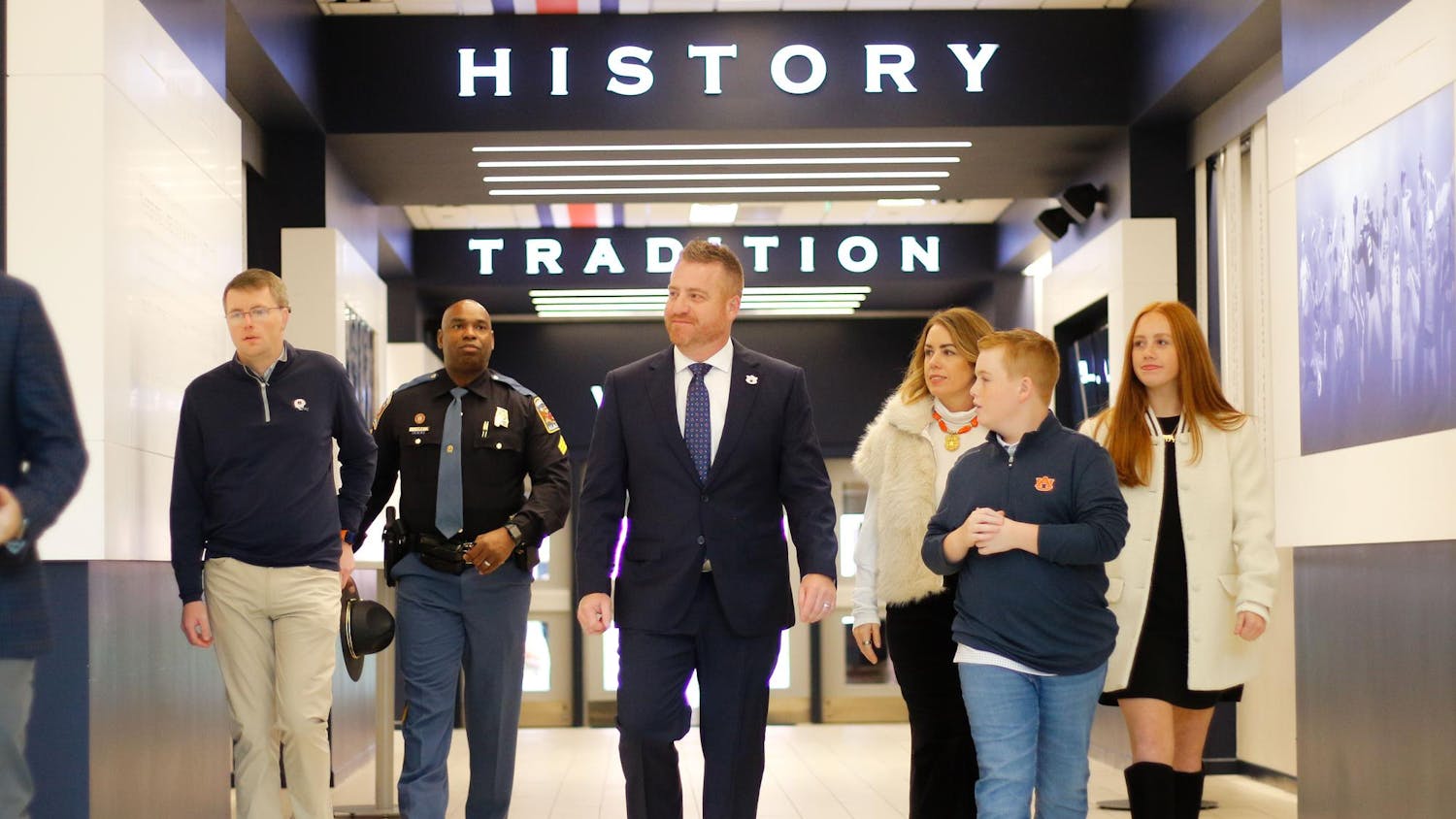As gun violence continues to occur at high rates across the United States, the debate over if and how to solve the gun violence epidemic, and whether or not one exists, has been reignited with newfound intensity.
The City of Auburn is safe compared to other cities of its size and larger. In 2014, Auburn had just one murder, according to FBI statistics. Years prior saw totals between one and three as well.
“Auburn is pretty well known, and even with that you don’t hear of anything bad every happening here,” said Jessica Patel, sophomore in undeclared science and mathematics. “I feel pretty safe.”
Even though Patel feels Auburn is safe, sometimes she has reservations because of recent shootings across the U.S., she said.
Despite Auburn’s reputation as a safe city with a low crime rate, some said they feel steps could be taken to make Auburn – and the U.S. as a whole – safer.
Yet, the same cannot be said for the state of Alabama more generally, where 860 individuals were killed by firearms in 2013, at a rate of 17.8 deaths per 100,000 people, according to the Centers for Disease Control and Prevention.
Patel said Alabama’s laws, which allow for the concealed and open carry of firearms in public spaces, should be reconsidered. She said gun-free zones, such as Auburn University’s campus, make her feel safer.
“Students shouldn’t be allowed to carry firearms," Patel said. "Other people might find out that you have it, and someone might steal it. Even if someone did have it for safety, it could, and probably would, scare someone else.”
Tighter restrictions on the process through which firearms are purchased and registered could help prevent future tragedies, according to Patel.
“If people go through the proper training and have a legitimate reason for owning a gun, they should definitely be allowed to have it,” Patel said.
According to the CDC, 33,636 Americans were killed by firearms in 2013, the most recent year for which data is available. In 2013, 21,175 of firearm deaths were suicides and 11,208 were homicides. There is estimated to be more than 300,000,000 guns in circulation within the United States, amounting to the highest rate of gun ownership in the world.
In recent years, the U.S. has seen its gun death rate hover around the 2013 rate of 10.6 deaths per 100,000 people, a rate much higher than other countries of similar culture and government. Canada and Australia have seen rates of 2.05 and 1.03, respectively, in recent years.
While many students echo Patel's views that restrictions need to be put on purchasing guns, other students said they believe increased gun ownership could prevent gun violence.
Tyler Knapp is a junior in political science and president of Student for Concealed Carry. Students for Concealed Carry advocates for universities across the nation to abandon gun-free zones.
"I don't feel safe on Auburn's campus because I'm not allowed to carry [a firearm]," Knapp said. "I know some people feel safe with the emergency [blue] light [telephones], but I don't."
Knapp supports even looser restrictions, going so far to say he supports no restrictions at all.
"Personally, I don't support any. I don't support requiring a license and I definitely don't support paying for a license," Knapp said. "I don't support training requirements, either. The criminals that are buying guns, doing harm, are not going to be buying guns from places that require a license or background checks."
Background checks are required by federal law when purchasing a firearm from gun shops and other licensed dealers; however, federal law does not require individuals to perform background checks before selling a firearm to another individual. This is often referred to as the “gun show loophole.”
“The cause of gun violence is the approach to the way our mental health system works,” said Wesley Stone, president of Auburn University’s Young Americans for Liberty.
Stone said he believes the solution to the United States’ gun violence epidemic is not regulation on firearms. Even though mental illness seems to be the root cause of mass shootings, according to Stone, he does not believe merchants should be forced by law to carry out a background check on the individual to whom a firearm is being sold.
“People who need treatment don’t get treatment, and people are ignored by the way our health care infrastructure is set up," Stone said. "The gun violence is not inherently because of the guns; rather, it’s because of the people who go untreated. It’s not about the guns themselves; it’s about the people who are shooting. It’s not the object’s fault.”
Do you like this story? The Plainsman doesn't accept money from tuition or student fees, and we don't charge a subscription fee. But you can donate to support The Plainsman.




